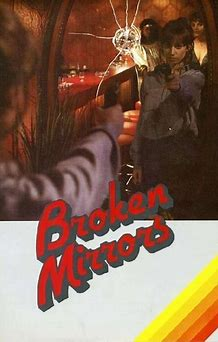Marleen Gorris’ follow-up to A Question of
Silence is very much its companion piece, foregrounding some of the same actors,
extending the earlier film’s questioning of the basic structures and
assumptions of work and family, carrying a similar sense of a text that can’t be
contained by prevailing patriarchal norms and expectations. Broken Mirrors
is the more structurally ambitious film, with two intertwining narrative tracks,
one located primarily within a brothel, the other tracking a serial kidnapper
and killer of women: the juxtaposition of two such cinematically loaded milieus
can seem strained at times, the point about contrasting forms of female
powerlessness all too obvious even before one of the characters voices it explicitly
near the end, but never to the point of negating the film’s overall strengths. It’s
at its strongest when observing workplace activity, the women putting up with a
wide spectrum of male behaviour (the “nice” clients as tediously transparent as
the aggressors), the two strongest characters gradually forming an axis which ultimately
allows them to stand up to a transgressing client and then to walk out (it’s
telling that the image of a woman holding a gun and firing into one of the
titular mirrors made it onto the film’s poster, given how wildly unrepresentative
it is of the overall substance). But it’s also plain that their stand, no matter
how momentarily brave, leaves the broader picture essentially unaltered (as
soon as they leave, the remaining women return to their usual time-killing
activities), and while one of the two says she won’t ever be back, the other
can go no further than “not if it’s up to me.” The law, in the form of police
or otherwise, is entirely absent: as in A Question of Silence, one leaves
the film with a sense of a female discourse from which men are excluded by
their very nature.


No comments:
Post a Comment